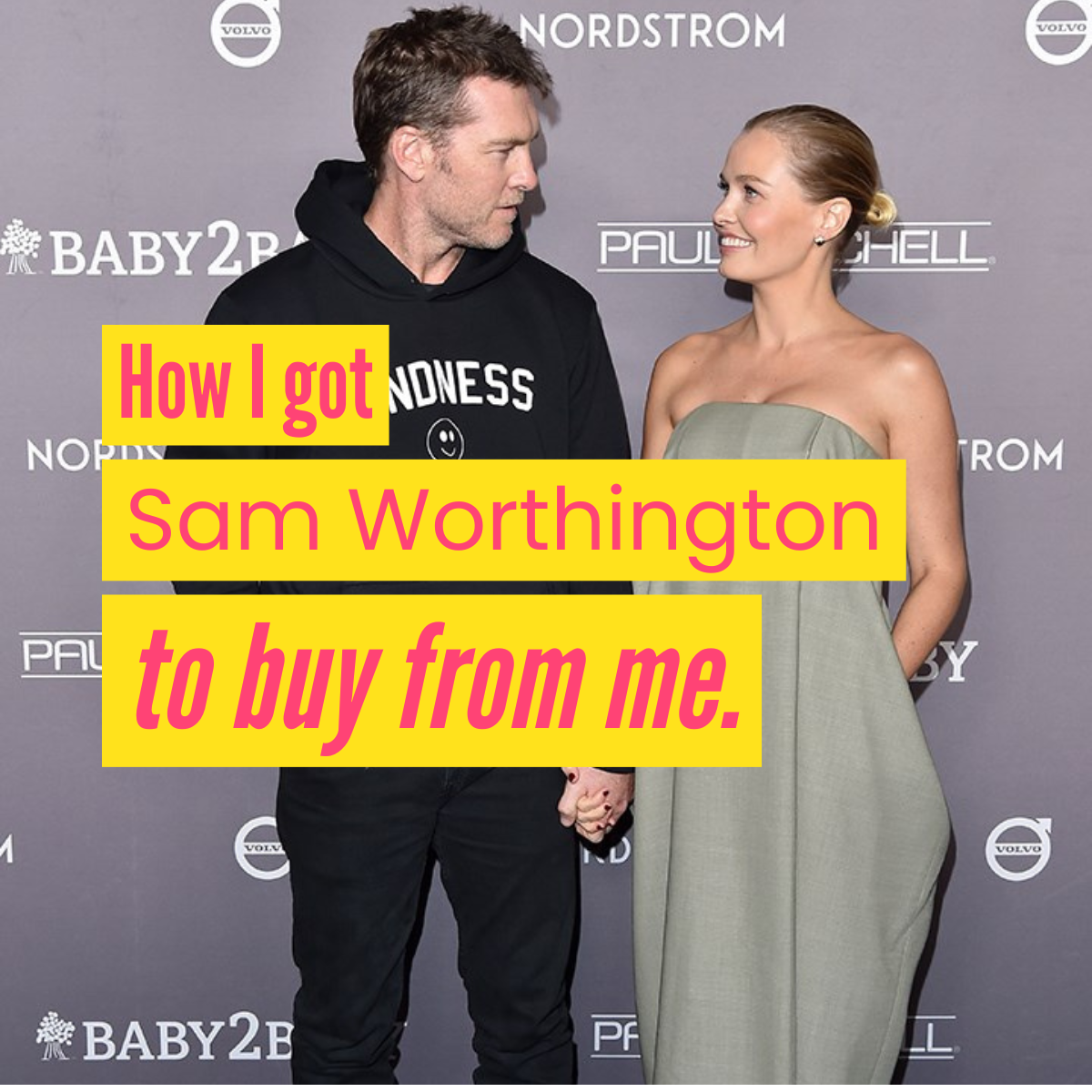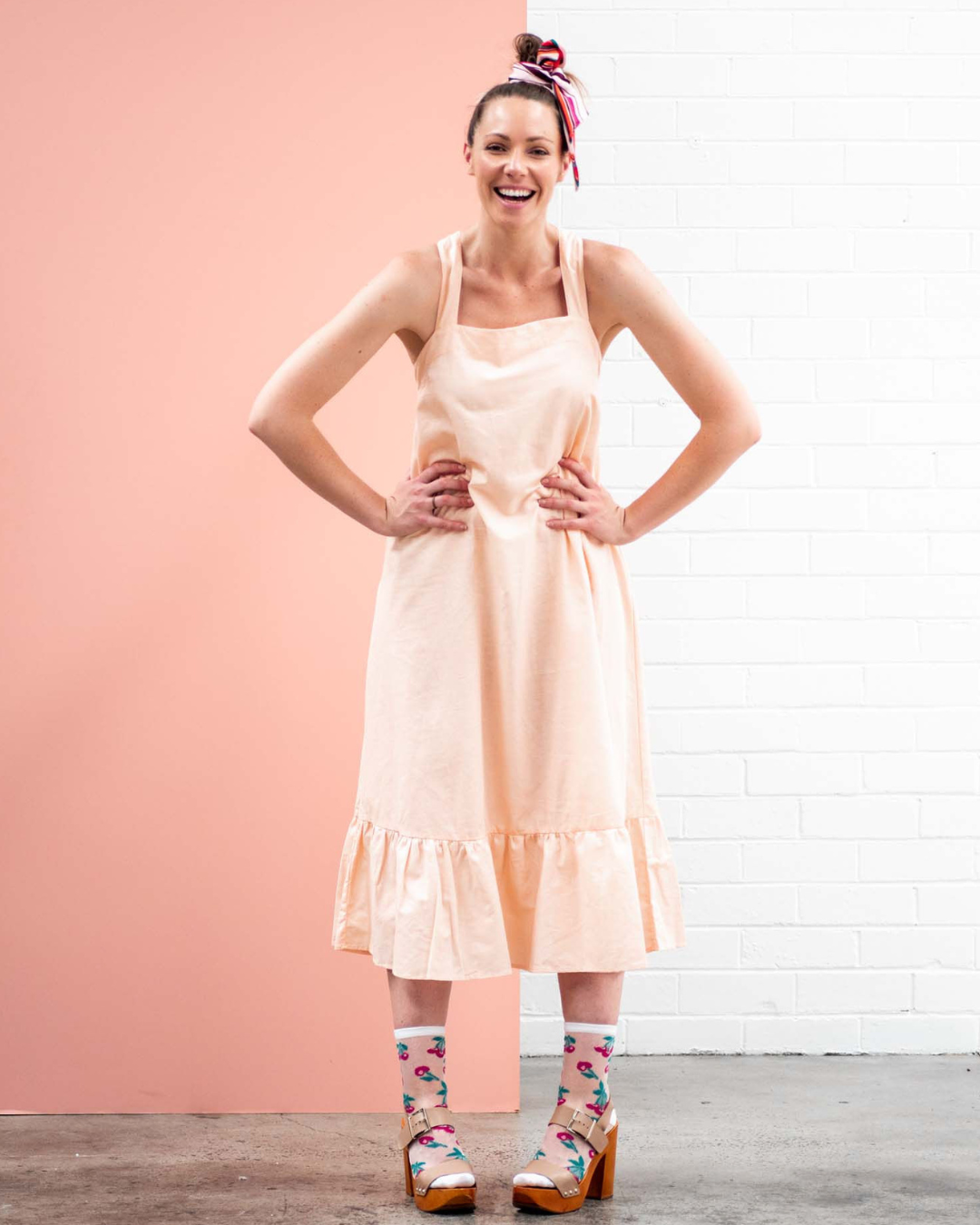You can tell a lot about a woman by the contents of her handbag, and even more so by the quality of it. A good handbag is like a best friend to a woman, and within its soft leather walls, lives a strong and sturdy refuge for everything she needs on a daily basis. Her diary, lipstick, bobby pins (in the handfuls), tissues and pens, among other tricks and treats to tackle any kind of day.
A woman's handbag is a 'life kit' of sorts, and Kellie Sands knows from firsthand experience how reliable one must be. She's the founder of Harlequin Belle and she adequately refers to her leather range as an 'antidote to fast fashion'. She's stripped back the over-designing and wastefulness of the accessories industry and she's returned to what matters most; leather bags with a timeless beauty that last far beyond the latest trends or a single season.
Harlequin Belle has championed slow and ethical fashion for the past five years, encouraging shoppers to invest in premium pieces that compliment their lifestyle now, and into the future. Kellie stepped away from the design room to shed some light on her experience with leather, and all things beautiful baggage...
How did the Harlequin Belle story begin?
Prior to starting Harlequin Belle, I had been working for other companies in the industry in leather footwear and accessory design and production. In the back of my mind, I had long thought of starting my own label and doing things in accordance with my own personal ethics. I also felt that there was something missing from the offerings I found on the shelves. I just wanted to buy quality accessories that looked great and would last, but that also offered functional design. The options I kept seeing were either impractical, unattractive or so crazy expensive that regular people just couldn’t justify buying them. At the time, I was a young mother in a single income household and thought there must be others out there who, like me, wanted nice things but found it hard to justify spending thousands on themselves. When I couldn’t find what I was after, I resolved to create it. We never set out to be cheap because there are plenty of cheap options already out there; we wanted to be affordable and luxurious. We wanted to make pieces that were stylish and useful but reasonably priced and that had real value - and we've done it.
What does the name 'Harlequin Belle' mean to you?
The Harlequin Bell (Darwinia Polychroma) is a rare and endangered wildflower from Western Australia. When it came time to name our label we wanted to find something that really represented us and what we were seeking to create. We have always had a great appreciation of and respect for our natural environment and wanted to pay tribute to the beauty and fragility of it, so we named it after the Harlequin Bell and we added an ‘E’ to the end because we thought it looked nice.
What are the most important factors you consider when designing your bags and wallets?
From a design perspective, there are three main things we focus on. They are (in no particular order) beauty, quality, and purpose. I say that they are in no particular order as the absence of any one factor is a deal-breaker. If a particular design doesn’t satisfy all three brand pillars for us, then it will never wear the Harlequin Belle brand name. Our bags must be useful, they have to be beautiful and must be quality. If something doesn’t serve a purpose, we don’t want anything to do with it. If it won’t last more than one or two uses, then forget about it. If it’s unsightly, then it won’t make you feel good while you're using it and we don’t want to be in that game either.
You're upfront with your customers about your mission to be a label with a conscience. What inspired this philosophy?
We’ve all seen, and in some cases worked for, companies that don’t just hold profit as the primary motivation, but often it seems like the only motivation. That just won’t do for us. Of course, we want and need a viable business, but we said from the outset if we can’t do it without sacrificing our values, then we can’t do it at all. Luckily, we found that there are lots of people who share similar values to us and that we could do it and do it well, not despite these values but because of them.
What are the biggest problems you see in the fashion industry today, and how do they influence your approach to making leather goods?
The biggest problem we see with the current fashion industry is the trend towards 'disposable goods' and the ever-increasing speeding-up of what was already ‘fast’ fashion. Some brands have fallen into the trap of constantly needing to release new items ostensibly to keep it fresh, but in reality, the underlying motivation is just to drive consumerism. Businesses get stuck in a race to create and sell things as cheaply as possible and compensate for the declining margins by selling more of them, more often. We see brands releasing hundreds of new pieces every year. Gone are the days when people would choose things that last, but we wanted to bring some of that back. Instead of releasing new items every month, week, day or hour, we chose to focus on making things that are of enduring design and quality. Things that we’ve carefully considered, detail by detail, and that will last. We very much subscribe to the philosophy of, buy once, buy well. You may pay a little more initially but in the long term, you save a lot of money and produce less waste.
Where do you source your leather from?
All of our leathers are sourced locally to where the pieces are made. We choose leather as a raw material as it is better for the environment than synthetic alternatives. When considering the ethics of our business, we also looked closely at the end-of-life cycle of our pieces. Most ‘vegan leather’ is actually made from plastic (polyurethane) which is less durable than leather, so your pieces are discarded sooner, and it takes hundreds of years to break down. Leather, however, has a longer life and it breaks down in a couple of decades once discarded. There is no way to skirt the fact that leathers were once part of living creatures, but we take care to ensure that all our leathers are a byproduct of the meat industry so we know that no animals were harmed solely for the use of their hide.
Let's talk about your personal ethical standards for production. How do you ensure your manufacturing partners are treated fairly?
All of our pieces are made in partnership with one family-owned factory that we have had a relationship with for many years prior to starting Harlequin Belle. This allows us to get better transparency of the conditions of the workers and the quality of the pieces. Sure, we pay more to produce our pieces then we could elsewhere and this has a flow-on effect to our margins and retail prices, but we gain so much more this way and paying the minimum has never been what we’re about.
Support ethical accessories and shop the Harlequin Belle range at harlequinbelle.com and as always, think consciously about your wardrobe.
The Fashion Advocate x






